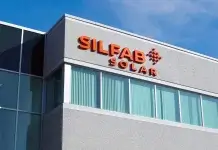Maxeon Solar Technologies has published results it says confirms the resilience of its Maxeon Interdigitated Back Contact (IBC) panels against damaging hotspots.
The company shared the results of its internal research in a white paper and R&D study on hotspots, featuring its IBC panels, including its Maxeon 7 line, alongside a series of competing technologies comprising half-cell ribbon-based back contact, half-cell heterojunction (HJT) and half-cell front contact tunnel oxide passivated contact (TOPCon) panels.
Panels were tested first under full-sun conditions to determine the speed and severity at which hotspots can form as solar cells then become partially shaded.
Maxeon says its IBC panels mitigate the development of hotspots that can irreparably damage standard panels by better minimizing heat build-up in shaded cells than the ribbon-based back contact, HJT and TOPCon technologies tested.
Additionally, when subjected to simulated bypass diode failure, the company says its panels’ electrical architecture continued to limit heat build-up in the shaded cells, affording additional protections.
“We’ve spent nearly 40 years refining the patented cell and panel design of our proprietary Maxeon IBC panel technology to maximize reliability and energy production, both critical factors in lowering the levelized cost of energy for customers around the world,” says Matt Dawson, Maxeon’s CTO.
“The hotspot resilience of the Maxeon IBC panel is just another way we contribute to a longer-lasting, more durable panel that facilitates superior lifetime energy output for solar customers.”




